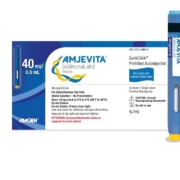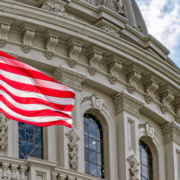U.S. Supreme Court rebuffs UnitedHealth Group challenge on Medicare overpayments
U.S. Supreme Court rebuffs UnitedHealth Group challenge on Medicare overpayments
June 21, 2022, 10:33 AM EDT
June 21 (Reuters) – The U.S. Supreme Court on Tuesday declined to hear UnitedHealth Group Inc’s (UNH.N) challenge to a government rule requiring private insurers that administer federally funded Medicare plans to return potentially billions of dollars in overpayments they receive based on incorrect diagnoses.
Turning away the Minnetonka, Minnesota-based insurer’s appeal, the justices left in place a lower court’s decision reviving the rule after a federal judge had previously struck it down. read more

UnitedHealth Group’s headquarters building is seen in Minnetonka, Minnesota, U.S. in this handout picture taken in 2019. UnitedHealth Group/Handout via REUTERS/File Photo
UnitedHealth said in a statement that it would continue to comply with federal rules and “remain focused on providing high quality and affordable healthcare to millions of seniors.”
The 2014 rule applies to so-called Medicare Advantage insurance plans, which are funded through the U.S. Department of Health and Human Services (HHS) but administered by private insurers like UnitedHealth. HHS pays Medicare Advantage plans a base amount per beneficiary, adjusted according to diagnostic codes reflecting each beneficiary’s individual risk factors.
Under the rule, if a Medicare Advantage insurer learns that it received a payment based on an unsupported diagnosis, it must return that payment within 60 days.
According to a 2016 federal audit, the government paid out about $16.2 billion that year based on unsupported diagnoses, nearly 10% of the total paid to Medicare Advantage insurers.
In its 2016 lawsuit, UnitedHealth argued that the overpayment rule treated Medicare Advantage differently from traditional Medicare, which pays providers on a fee-for-service basis and does not comprehensively audit claims for overpayments. The insurer said the difference ran afoul of the Medicare law’s requirement of “actuarial equivalence” between Medicare Advantage and traditional Medicare.
U.S. District Judge Rosemary Collyer in Washington agreed, overturning the rule in 2018. But the U.S. Court of Appeals for the District of Columbia Circuit last year concluded that Congress never intended to free insurers of their obligation to return overpayments when it passed the actuarial equivalence requirement, restoring the rule.
HHS did not immediately respond to a request for comment.
AHIP, a health insurance trade group that does not include UnitedHealth, submitted a brief to the Supreme Court supporting the insurer, as did the U.S. Chamber of Commerce business group and America’s Physician Groups, a national physician group association.
Our Standards: The Thomson Reuters Trust Principles.
Source: Reuters











